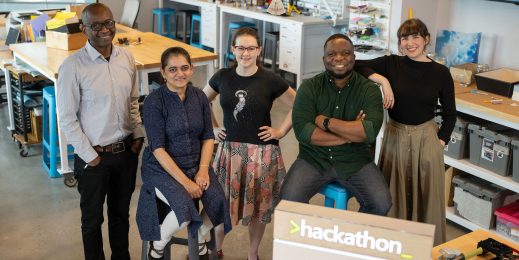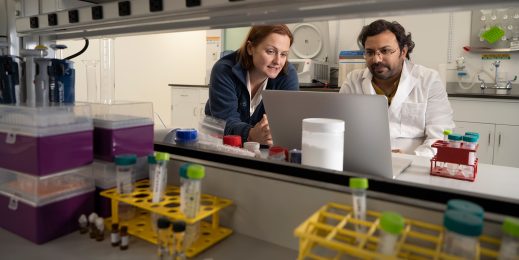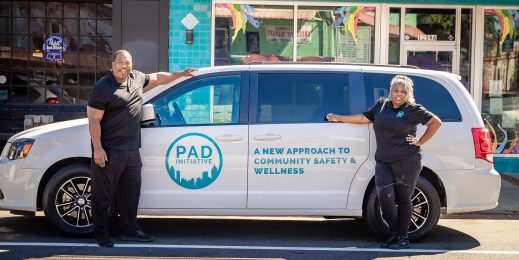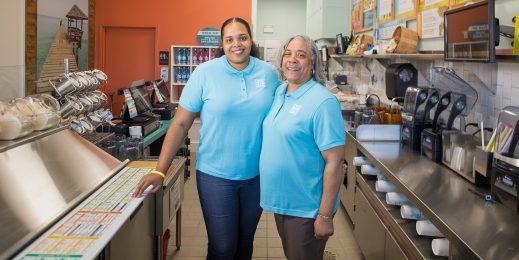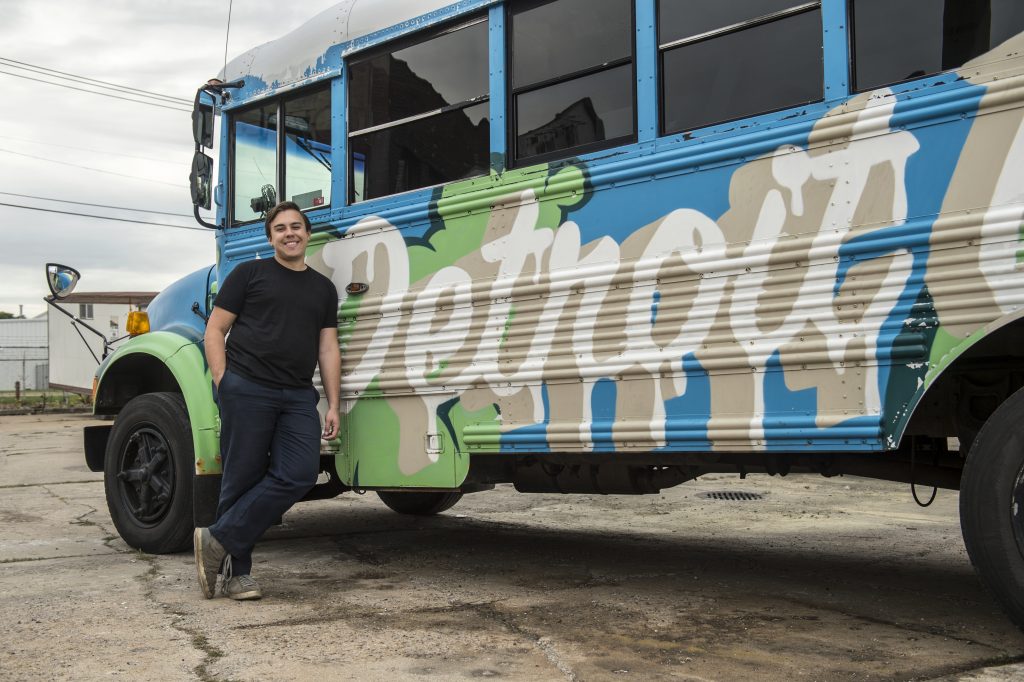
The Detroit Bus Company empowers youths in mission to improve mass transit
In southwest Detroit, nearly half of the adults lack a high school diploma and more than half of the kids live in poverty. Neighborhood programs help kids stay in school, be productive and learn job skills, but what’s the point if kids can’t get to those programs? Often there’s no one to drive them, no safe roads for walking and no public transportation.
Enter The Detroit Bus Company. For the last two years, the small bus line has run a free, door-to-door shuttle for neighborhood kids, giving them a safe, reliable way to get to tech classes, reading programs and sports camps. It’s broadened their world, helping them meet college professors, grad students, innovators and city officials.
“It’s not just a bus ride for kids in the inner city. You’re taking them to a different planet. Their confidence goes through the roof,” says Mike Cruz, a teacher at Western International High School, where his students board one of the company’s colorful buses.
The bus line is the creation of Andy Didorosi, a self-described “gearhead” and one of many entrepreneurs reshaping post-bankruptcy Detroit. Didorosi owns a vintage motorcycle repair shop and a 90,000-square-foot factory warehouse that he turned into a thriving business complex, and he organizes so-called Thunderdrome races at a formerly abandoned bike racetrack.
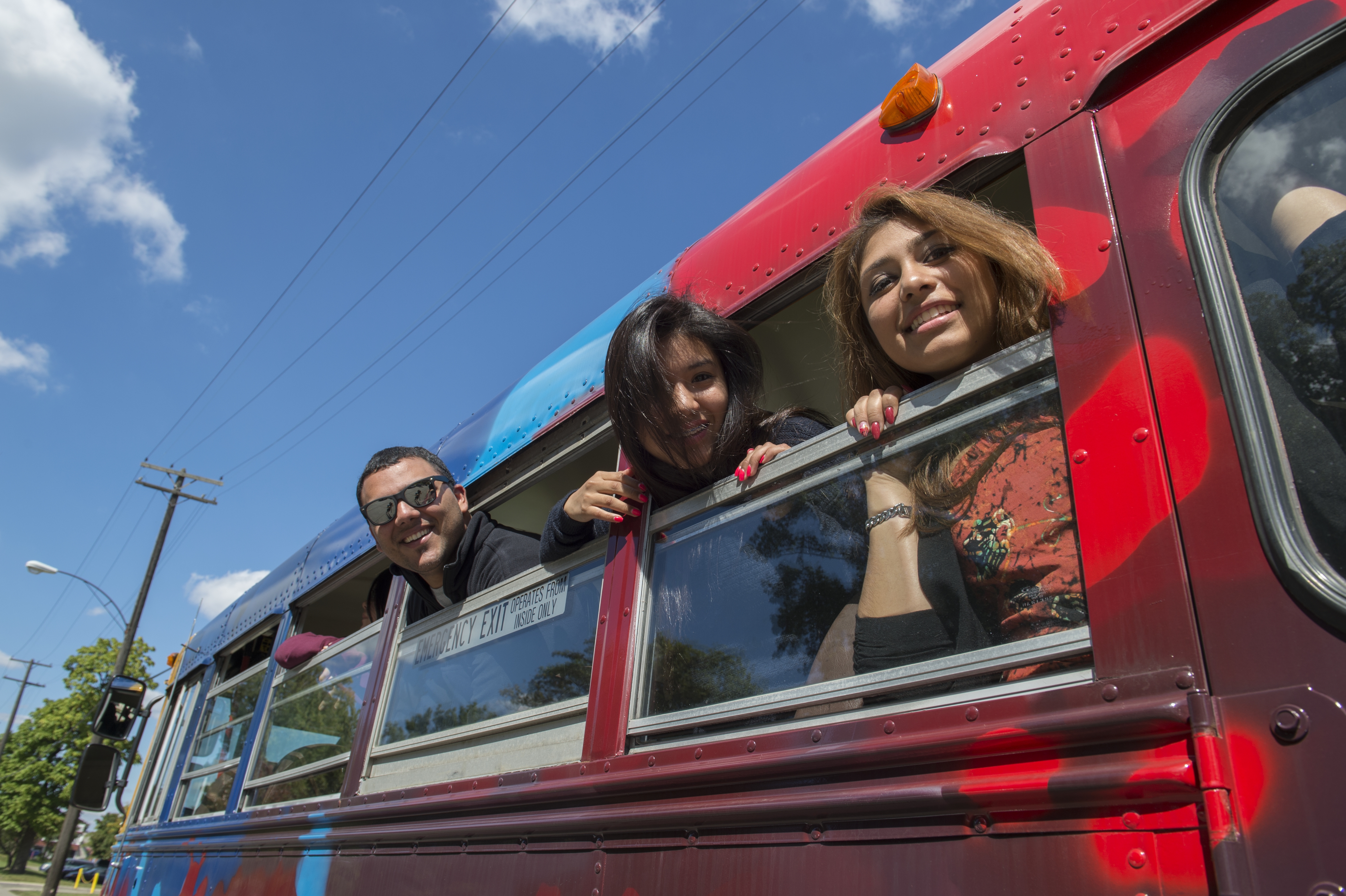
In 2012, Didorosi started The Detroit Bus Company to help solve the city’s transit woes. He bought three old school buses, fixed them up, added Wi-Fi and good speakers, and hired a graffiti artist to paint them with vivid designs.
He began studying data on jobs, population and bus routes; collecting community feedback; and working with youth leaders to understand the transportation needs of kids. He then bought three more buses.
“I didn’t really have much of a plan, but I knew we had to do something,” he says.
The company now runs historical city tours with lively themes like music and Prohibition, which help pay for the youth bus program. Other funding comes from bus rentals and the Skillman Foundation, a youth advocacy group, whose partner, Data Driven Detroit, analyzed the neighborhood data mentioned above.
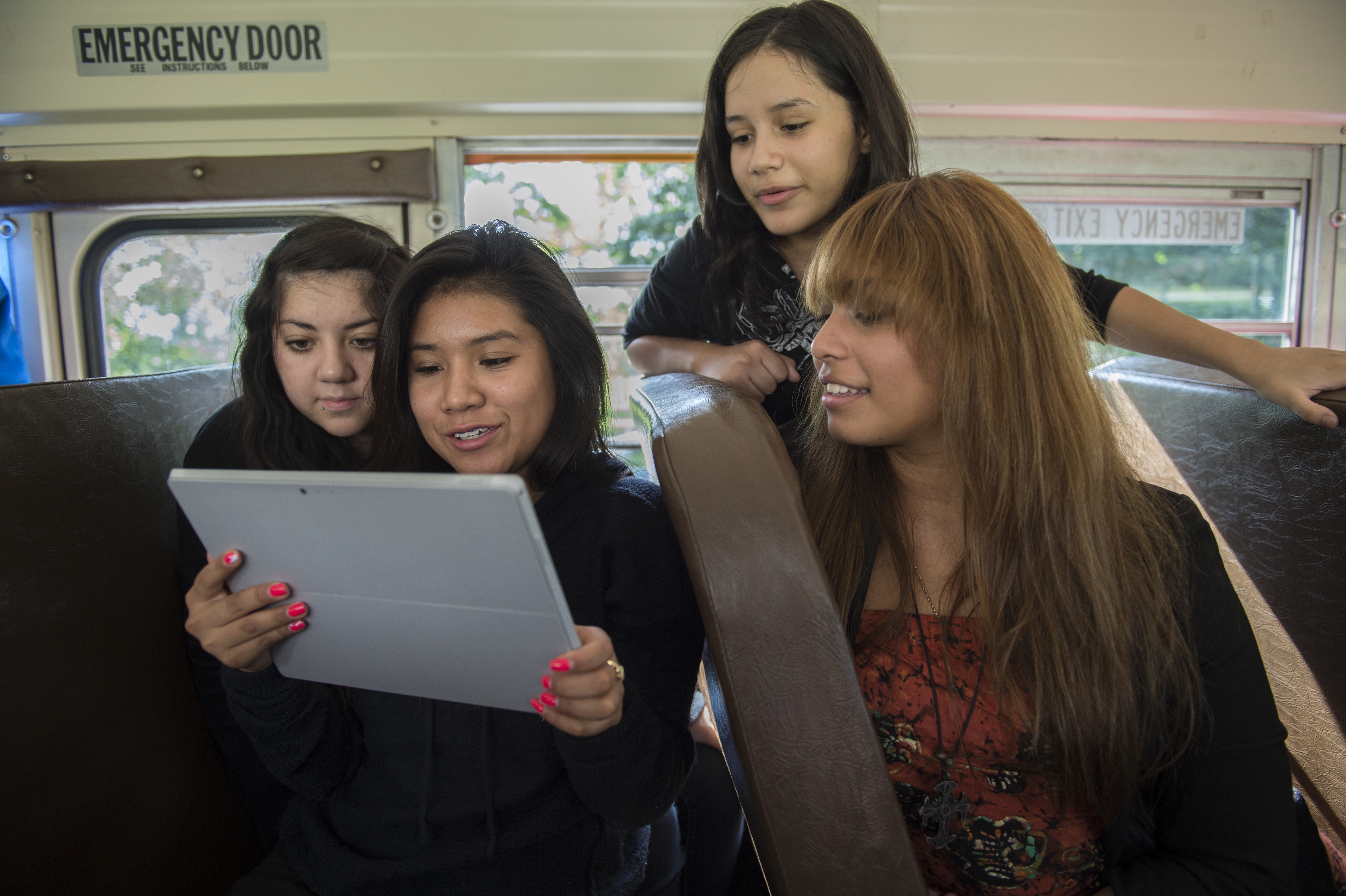
“As a teacher, my number one obstacle, as crazy as it sounds, is transportation,” says Cruz. “What kills me is a lot of great programs have gone down the tubes because of transportation.” To participate in enrichment programs, many of his students would have to walk past miles of factories or walk home from a bus stop at night on unsafe streets.
But last year, The Detroit Bus Company enabled many of his students to do an innovative design and construction program, where they worked with grad students to build a restaurant and new community space. They earned college credit as they welded, mixed concrete, studied urban design and incorporated recycled materials. Project advisors also helped two of the teens get college scholarships.
“It was a life-changing experience,” says Cruz. Not only did the bus company transport kids to and from the program, drivers walked students to their front door, a “total game changer” that gave parents peace of mind, he says. As on all the youth routes, drivers taught the kids tech skills with a Surface Pro 3, which they also use to take attendance and check in with the main office.
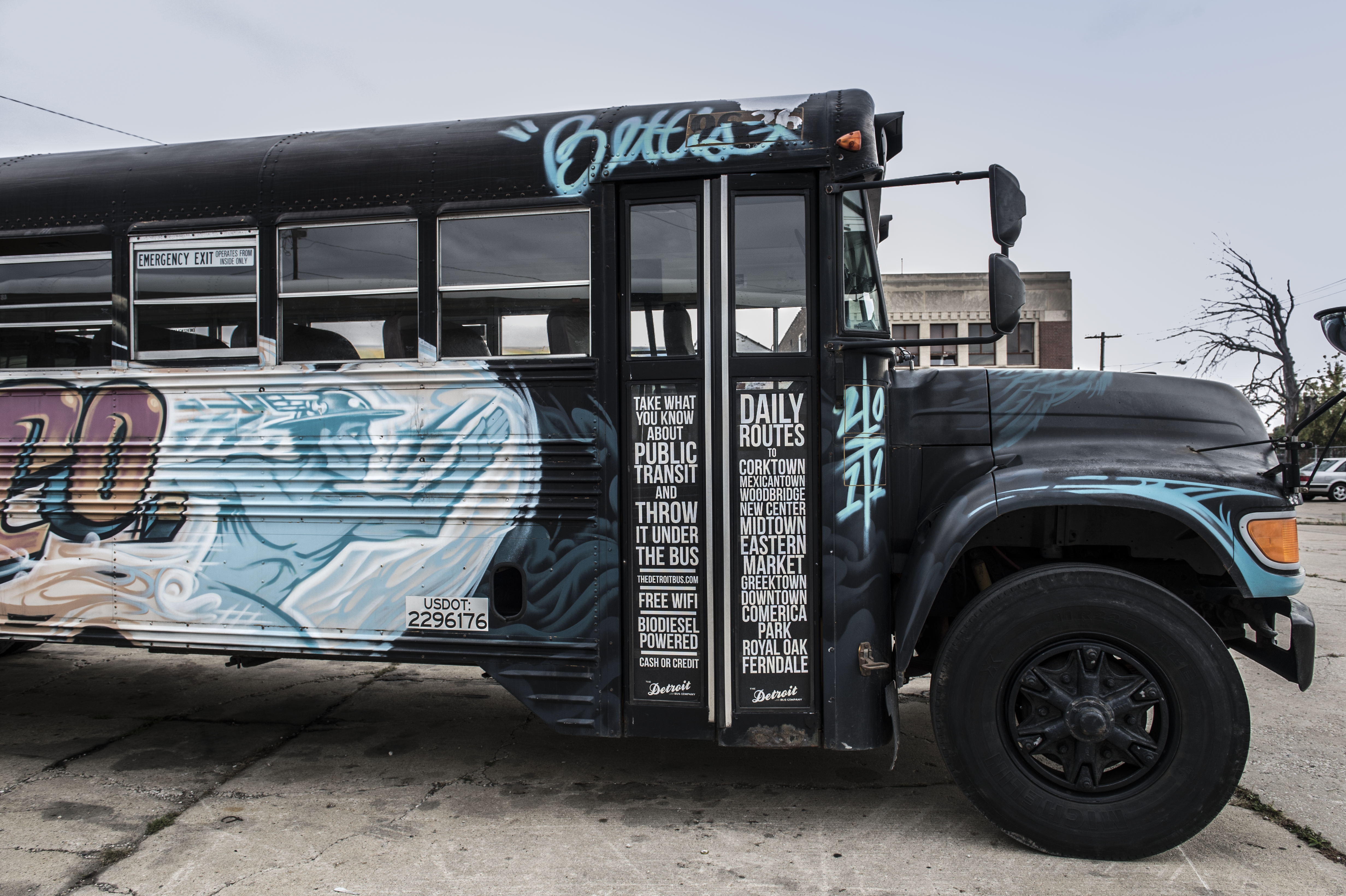
Didorosi is now figuring out how to continue funding the youth bus program for the next school year. It’s part of his larger mission to help fix Detroit’s bus system, long known for major service gaps, unreliable buses and budget cuts. The dysfunction recently came to national light with the plight of a Detroit man who had to walk 21 roundtrip miles a day to his factory job because of poor busing service.
“A lot of routes have an hour-long headway, meaning when the thing is running optimally, you see a bus every hour,” says Didorosi. But many buses are late, full or a no-show, making a bus commute challenging for many people, he says.
Like he did for his youth bus program, Didorosi is working to provide community-driven service for more people, with bus routes from dense, underserved areas to popular destinations such as job clusters and senior centers. He plans to use intelligent routing for a streamlined service and hopes commuters will enjoy the bright, quirky buses the same way his tour bus customers do.
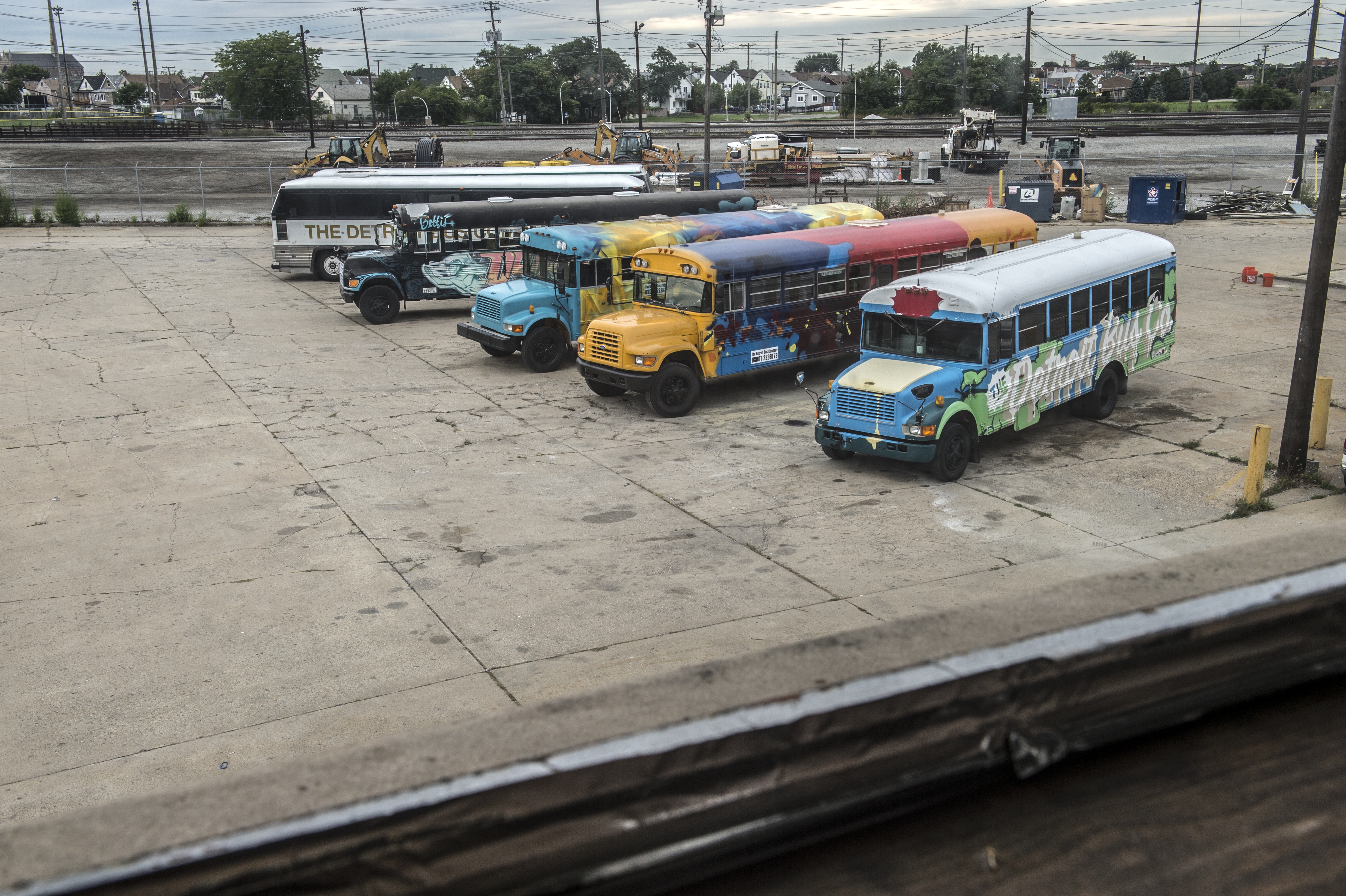
“Folks really dig it. It’s not an anonymous vehicle picking you up. Your bus has a name. It has a paint job. It has a personality,” he says of “Lock Ness,” “Bettis” and his other buses.
“I think it’s really going to change people’s perspectives about their commute, being on a bus like that. It might be dumb for us to make the commute exciting and unpredictable in a good way, like, ‘What are we going to listen to today?’ But we’re going to give it a shot.”
In addition to the Surface Pro 3 tablets, Didorosi uses Office 365 to help his drivers and route planners keep their routes running smoothly. To learn more about him and The Detroit Bus Company, go to Microsoft’s Instagram page, a look at people who break boundaries and #DoMore.
This story is part of a series on Detroit entrepreneur-owned businesses, including Detroit Bikes and the Detroit School of Rock and Pop Music.
Lead photo: Andy Didorosi, owner and founder of The Detroit Bus Company, stands next to one of his refurbished school buses. Photo: Ami Vitale.







